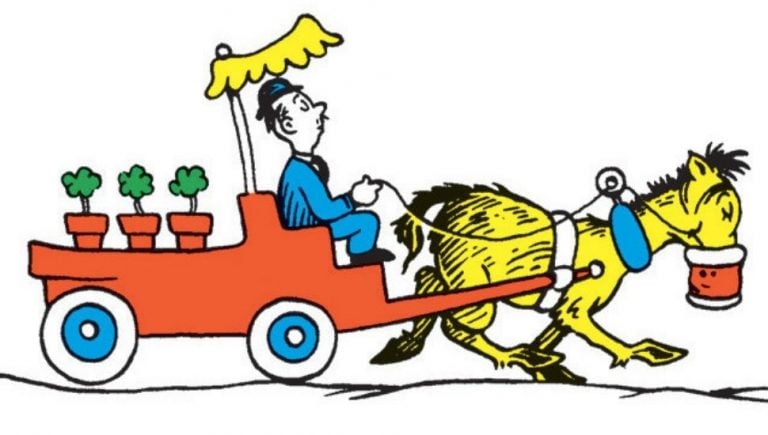Six Dr Seuss books will cease publication because of racist and culturally insensitive imagery, Dr Seuss Enterprises confirms.
Following discussions with teachers, academics and specialists, the business that protects the landmark author’s legacy confirmed that And to Think That I Saw It on Mulberry Street, If I Ran the Zoo, McElligot’s Pool, On Beyond Zebra!, Scrambled Eggs Super! and The Cat’s Quizzer will no longer be published.
“These books portray people in ways that are hurtful and wrong,” Dr Seuss Enterprises shared in a statement.
“Ceasing sales of these books is only part of our commitment and our broader plan to ensure Dr Seuss Enterprises’ catalogue represents and supports all communities and families.”
The beloved author has been subject to retrospective criticism in recent years, over the way people of colour are portrayed and illustrated in a number of his most adored books.
In 2019, University of California researchers Katie Ishizuka and Ramón Stephens published an illuminating study, “The Cat Is Out of the Bag: Orientalism, AntiBlackness, and White Supremacy in Dr. Seuss’s Children’s Books.” The work studied over 50 books published by Dr Seuss over 70 years and found that a meagre 2% of Dr Seuss’s human characters are non-white — and those that aren’t lean into harmful racial stereotypes.
“Minimizing, erasing or not acknowledging Seuss’ racial transgressions across his entire publishing career deny the very real historical impact they had on people of color and the way that they continue to influence culture, education, and children’s views of people of color,” the authors wrote.
Love Music?
Get your daily dose of metal, rock, indie, pop, and everything else in between.
A number of landmark children’s series have faced similar scrutiny in recent years. As ABC notes, in 2007 author and educator Herbert R Kohl published Should We Burn Babar?, a work that argued that the Babar the Elephant books were celebrations of colonialism. Curious George has also faced criticism on the premise of a white man importing a pet monkey from Africa.

































